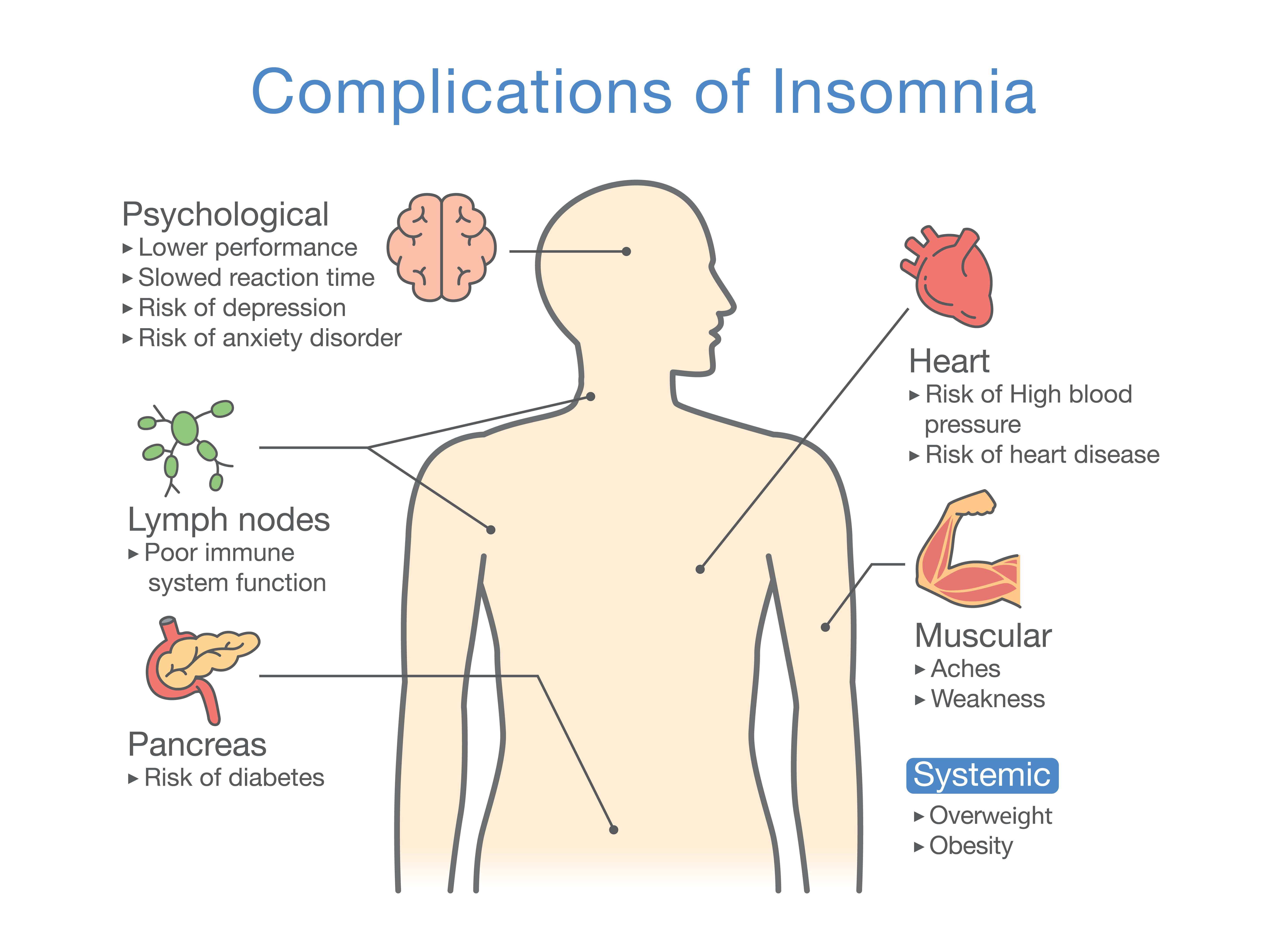

Gastro-intestinal discomfort arising from food that has not been fully cooked, is also a contributor to middle of the night insomnia. Nocturnal awakenings are more common in older patients and have been associated with depressive disorders, chronic pain, obstructive sleep apnea, obesity, alcohol consumption, hypertension, gastroesophageal reflux disease, heart disease, menopause, prostate problems, and bipolar disorders. If interrupted sleep (called "biphasic sleeping" or " bimodal sleep") is perceived as normal and not referred to as "insomnia", less distress is caused and a return to sleep usually occurs after about one hour. Sleep research conducted in the 1990s showed that such waking up during the night may be a natural sleep pattern, rather than a form of insomnia. Excessive daytime sleepiness is reported nearly two times higher by individuals with nocturnal awakenings than by people who sleep through the night. The disrupted sleep patterns caused by middle-of-the-night insomnia make many sufferers of the condition complain of fatigue the following day. This kind of insomnia (sleeplessness) is different from initial or sleep-onset insomnia, which consists of having difficulty falling asleep at the beginning of sleep. Middle-of-the-night insomnia (MOTN) is characterized by having difficulty returning to sleep after waking up during the night or very early in the morning. Sleep maintenance insomnia, Nocturnal awakenings, Middle of the night awakenings, and Middle insomnia.

Medical condition Middle-of-the-night insomnia


 0 kommentar(er)
0 kommentar(er)
